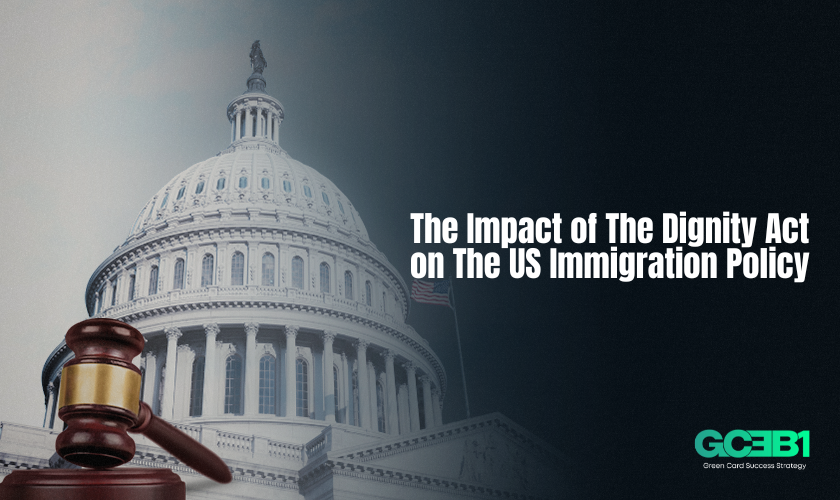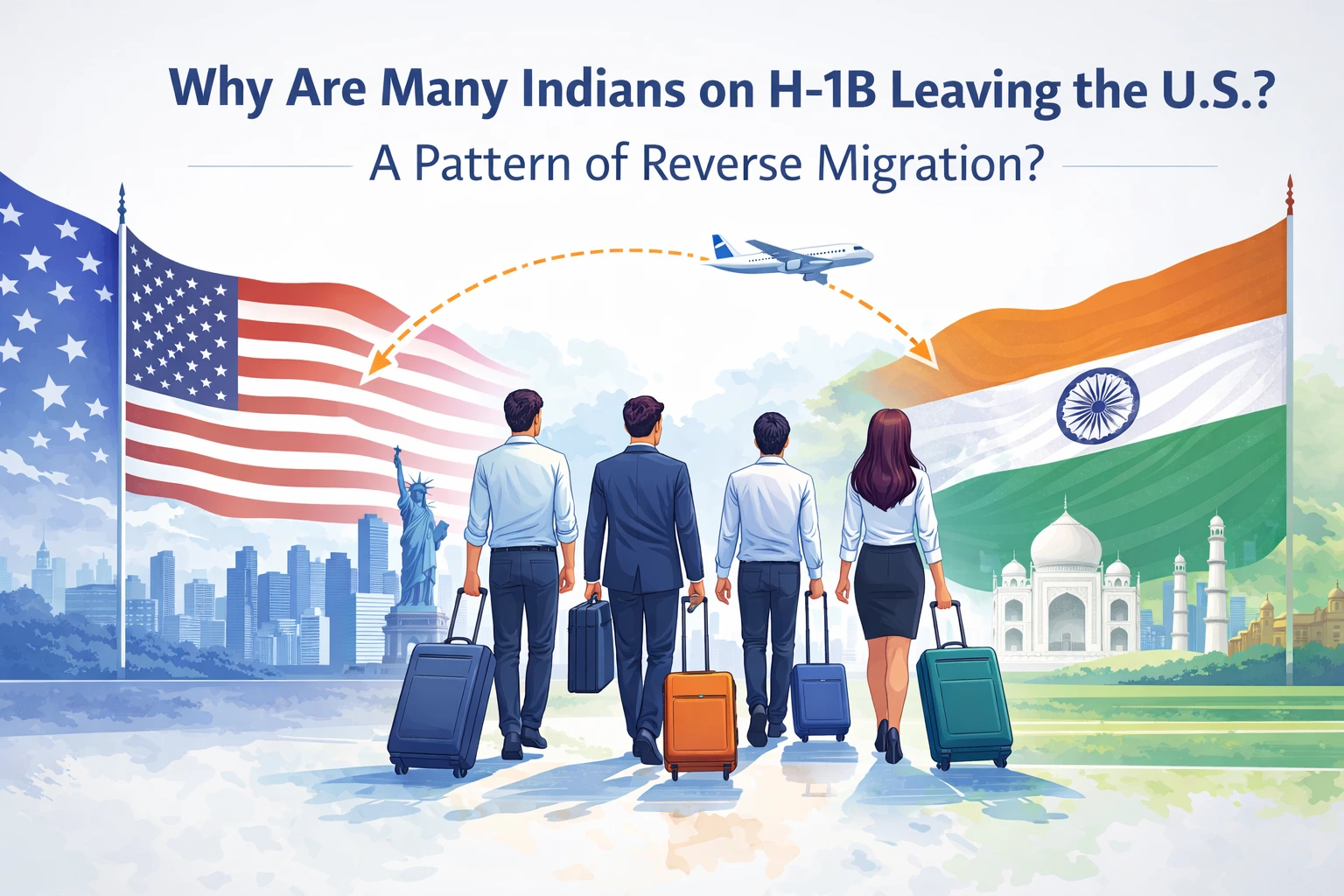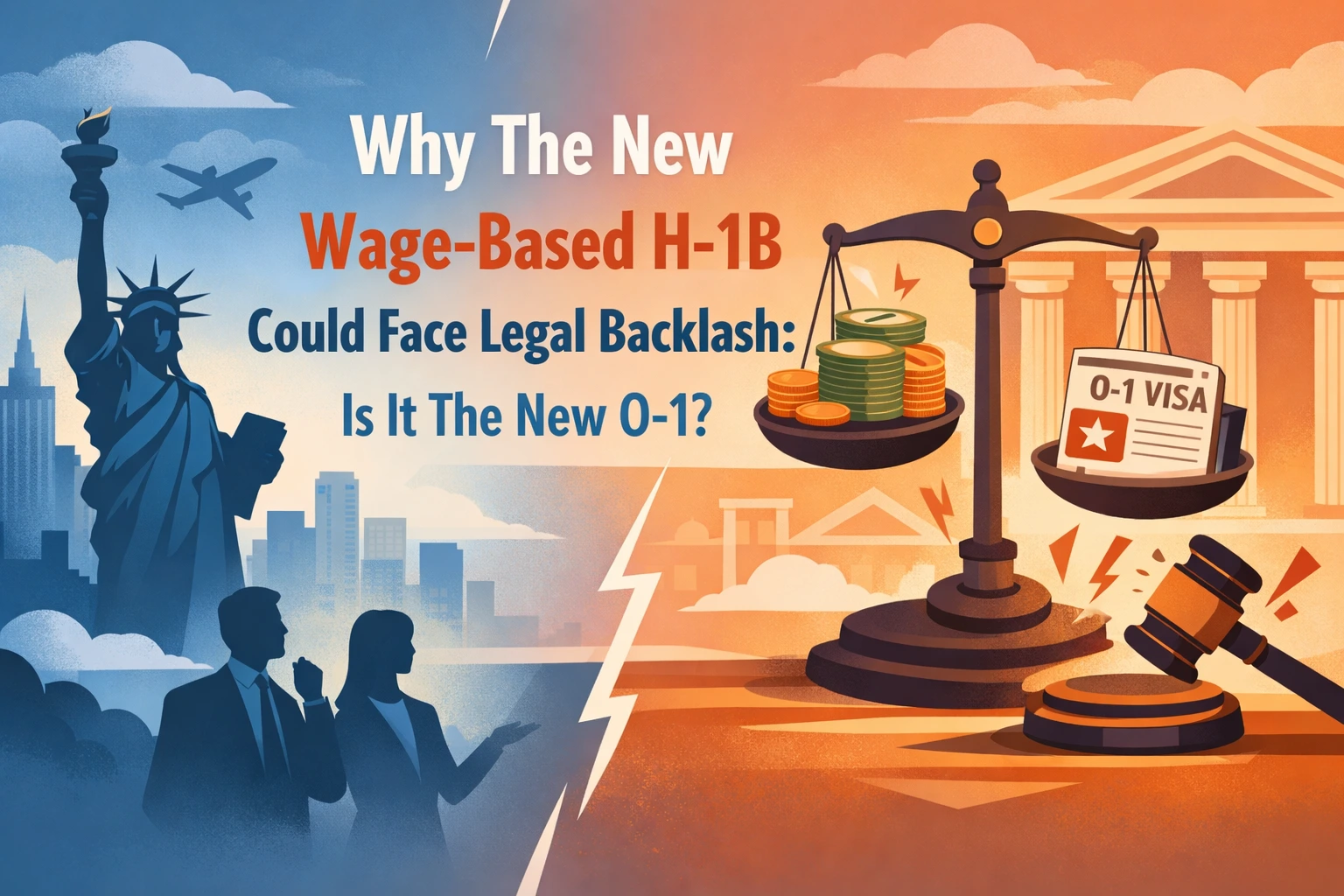Everything You Need to Know About USCIS Policy on Public Charge
.png)
If you are a visa aspirant, it is always best to have a clear grasp of the U.S. immigration requirements and laws. One such important legal formulation is the policy on public change. This is because whether you are pursuing family-based immigration or working with EB-1A Green Card Consultancy services, this critical policy could significantly impact your visa application success. The recent September 2025 USCIS policy memorandum reinforces stricter enforcement of these longstanding requirements.
Understanding the concept of the public charge and its relevance for visa applicants
A public charge refers to an individual who becomes primarily dependent on the government for subsistence. This determination focuses specifically on two scenarios: receiving public cash assistance for income maintenance or requiring long-term institutionalization at government expense. The rule is, however, not about occasional assistance. Instead, it is about fundamental reliance on taxpayer-funded support.
President Trump has emphasized that "taxpayer-funded benefits be provided only to eligible persons and not encourage or reward illegal immigration to the United States". This policy direction means immigration officers must strictly evaluate whether applicants might become dependent on government assistance in the future.
Who could face the public charge scrutiny?
The public charge ground of inadmissibility applies broadly to aliens seeking visas, admission, or adjustment of status. This includes most family-based and employment-based immigrants, though certain categories receive exemptions that must be properly identified during the application process.
Experienced EB-1A Consultants understand that even exceptional ability cases are not automatically exempt from public charge considerations. The determination remains entirely prospective: officers must predict future dependency based on current circumstances.
The seven critical assessment factors
USCIS officers evaluate seven mandatory factors when determining public charge likelihood:
Personal demographics
- Age: Retirement-age applicants face enhanced scrutiny of their financial preparedness
- Health: Medical conditions affecting earning capacity or potential institutionalization needs
- Family status: Household composition and dependent considerations
Financial foundation
- Assets, resources, and financial status: Complete financial portfolio including retirement accounts, investments, and liquid assets
- Education and skills: Demonstrated ability to maintain sustainable employment and income
Support systems
- Affidavit of support: Required legally binding sponsorship agreements
- Public benefit history: Any past receipt of cash assistance or institutionalization
The holistic "Totality of Circumstances" analysis
No single factor can determine your outcome (except for lacking a required Affidavit of Support). Officers must consider all elements together to make comprehensive assessments.
For instance, if you are approaching retirement, officers will thoroughly examine your pension plans, 401(k) accounts, Social Security benefits, trust funds, and other retirement investments. Your age, health status, and employment history collectively inform whether you will likely remain financially self-sufficient after immigration.
An affidavit of support is your primary defense
Most family-based immigrants and certain employment-based applicants must submit Form I-864 (Affidavit of Support). This legally enforceable contract requires sponsors to:
- Maintain the immigrant at 125% of federal poverty guidelines (100% for active military sponsors)
- Accept financial responsibility for any government benefits received
- Submit to the court's jurisdiction for enforcement obligations
Professional EB-1A Green Card Consultancy services recognize that insufficient affidavits often result in automatic inadmissibility. Hence, they help the candidates prepare likewise.
Form I-485: Critical compliance requirements
The Application to Register Permanent Residence requires meticulous completion of the public charge sections:
- Item 56: Correctly identify exemption eligibility
- Items 57-66: Provide comprehensive household size, income, assets, education, and benefit history information
Incomplete responses trigger Requests for Evidence or application denials. Officers cannot approve applications with missing public charge documentation.
Consequences of adverse determinations
If officers conclude you are likely to become a public charge, you will receive either a Notice of Intent to Deny or immediate denial. However, public charge bonds may offer discretionary relief for otherwise eligible applicants who can provide financial security to the government.
Strategic preparation tips from EB-1A consultants
We will strongly advise you to document everything as neatly as possible. Thoroughly document your financial stability, ensure sponsors understand their legal obligations, and present compelling evidence of long-term self-sufficiency. Officers evaluate your complete life circumstances through the documents you provide them. So take good care to do everything meticulously at this stage.
Current enforcement climate
President Trump's administration is currently emphasizing strict benefit eligibility verification. The Congress, too, has passed H.R.1, limiting alien access to public benefits. All these moves show that the current administration is going to prioritise financial independence for the visa applicants. The policy reinforces over 100 years of immigration law prioritizing self-sufficiency.
At GCEB1, as a leading EB-1A green card consultancy, it falls into our responsibility to update all the visa holders and applicants alike with all the changes in the policy. We try to write about the legal changes in simple and plain language so that everyone can understand the twists and turns without getting wrapped in the complications of the legal parlance. Bookmark our blog section to stay updated with all the changes in the current visa landscape.





.png)
.png)

.webp)

.png)

.png)

.webp)